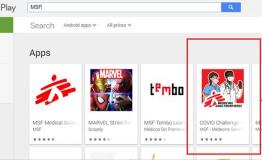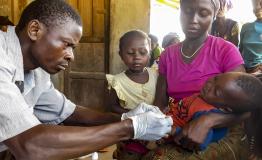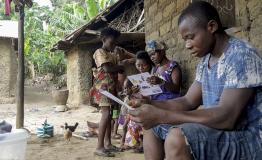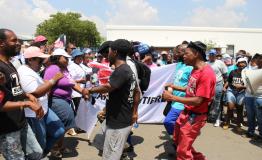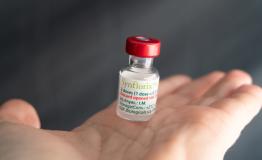In 2021, we provided general and specialist healthcare in three districts and ran training programmes to address the severe shortage of qualified medical staff, which has resulted in a lack of services for the most vulnerable groups.
In Hangha hospital in Kenema district, where our team provides urgent paediatric care to children under five, we started to build a new maternity department, with two operating theatres for complicated deliveries and a neonatal unit, which will increase the total hospital capacity to 164 beds. Our staff also work in peripheral health units and offer care in the community for diseases such as malaria, diarrhoea and pneumonia.
In Tonkolili district, we focus on reducing maternal and child deaths by supporting paediatric, maternity, neonatal and adolescent services at Magburaka hospital, the Magburaka mother and child health post, 12 health centres and 10 malaria points in Yoni chiefdom. In addition, we work with the district authorities to boost epidemic response capacity.
In Makeni town in Bombali district, we are helping the national tuberculosis (TB) programme to improve care for drug-resistant TB and to make it available on an outpatient basis. In 2021, we expanded our activities to all the district’s TB facilities, including prisons. Our team also continues to support the country’s main TB facility in Lakka hospital, in Freetown.
After a new Ebola outbreak was declared in February in Guinea, an emergency team was sent to support the health system in Kailahun border district to prevent the spread of the virus into Sierra Leone. The team set up isolation wards in several health facilities, trained healthcare workers and reinforced health promotion.
In Freetown, we assisted with the government’s COVID-19 vaccination campaign in Thompson Bay slum and started to renovate parts of Connaught hospital to set up a 45-bed COVID-19 treatment centre.







